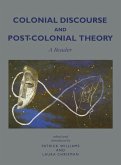Challenging the notion that francophone literature generally valorizes a traditional, natural mode of being over a scientific, modern one, Inter-tech(s) proposes a new understanding of the relationship between France and its former colonies in Africa and the Caribbean by exploring how various postindependence authors depict technology as a mediator between them. By providing the first comprehensive study of the representation of technology in relation to colonialism and postcolonialism in francophone literature, Roxanna Curto shows the extent to which the authors promote modernization and social progress.
Curto traces this trend in the wake of decolonization, when a series of important francophone African and Caribbean writers began to portray modern technology as a liberating, democratizing force, capable of erasing the hierarchies of the old colonial order and promoting economic development. Beginning with the founders of Négritude Aimé Césaire and Léopold Sédar Senghor and continuing with Frantz Fanon, postindependence novelists such as Ousmane Sembène, and contemporary writers such as Édouard Glissant, the author shows how these francophone writers champion the transfer of technology from the metropolis to the former colonies as a means of integrating their cultures into a global community, thus paving the way for modernization and technological development.
Dieser Download kann aus rechtlichen Gründen nur mit Rechnungsadresse in A, D ausgeliefert werden.









